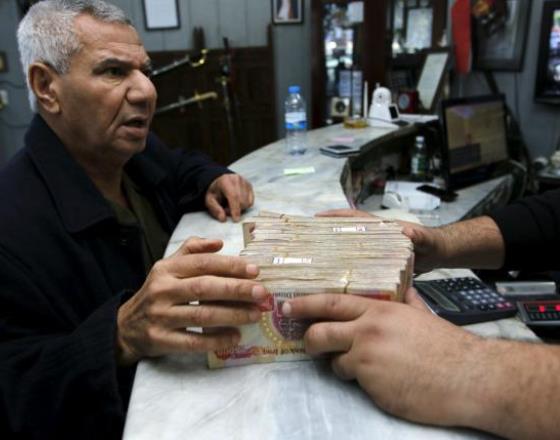
Iraq's central bank has increased the sale price of U.S. dollars to banks and currency exchange companies by 16 dinars, or 1.37 percent, as the government seeks to compensate a decline in oil revenue, a government official and the central bank said.
The sale price of the dollar "has been adjusted to 1,182 dinars," the central bank said in a statement on Monday.
The previous price was 1,166 dinars for a dollar, Mudher Saleh, a top economic adviser to Prime Minister Haider al-Abadi and former deputy central bank governor, told Reuters.
"This is a small adjustment, it's not a devaluation. It will increase government revenue to meet local needs," said Saleh.
A global oversupply of crude oil has pushed prices to below $40 a barrel from more than $100 a barrel in June 2014. The government depends on oil sales for 95 percent of its revenue.
"It may be the first of many steps to reduce the budget deficit and increase the local income," said Abdul Rahman Najm, an economics professor at several universities in Baghdad. "As no improvement in oil prices is expected, there will be more steps to reduce the value of the dinar versus the dollar."
"Iraq needs large revenues to continue the war on Daesh," he added, using a local derogatory name of Islamic State, the group that seized large swathes of territory in the north and the west of the country.
Iraq's armed forces on Sunday said they are preparing to launch a new offensive to capture Ramadi, the capital of the western province of Anbar that fell to Islamic State in May. Other cities that also remain under the militants control are Falluja and Mosul, Iraq's second-largest city.
The oil price decline forced the government to cut its spending to 105.8 trillion dinars in the 2016 budget, compared with a spending forecast of 119 trillion dinars in 2015. The budget deficit next year is set at 24 trillion dinars, about the same as this year's 25 trillion-dinar forecast.
original source: http://www.reuters.com/article/us-iraq-economy-frx-idUSKBN0U40O020151221
